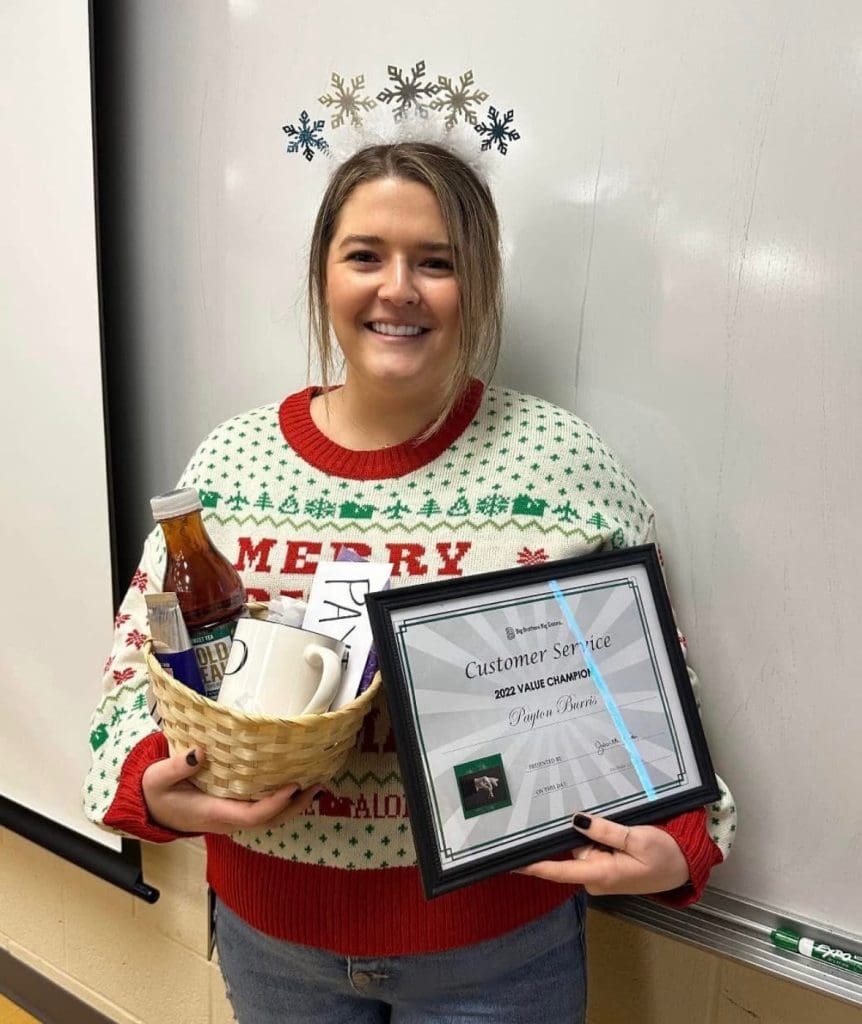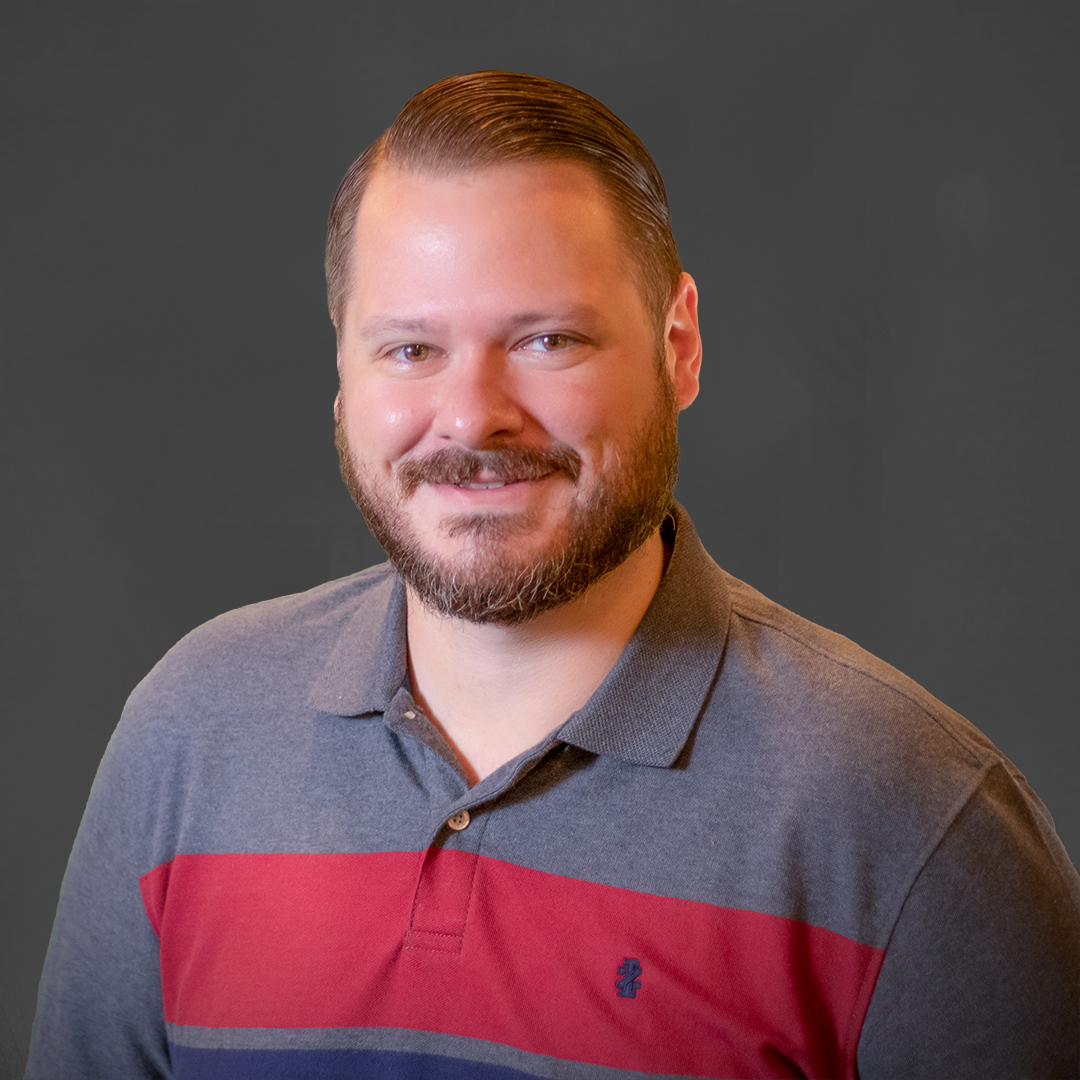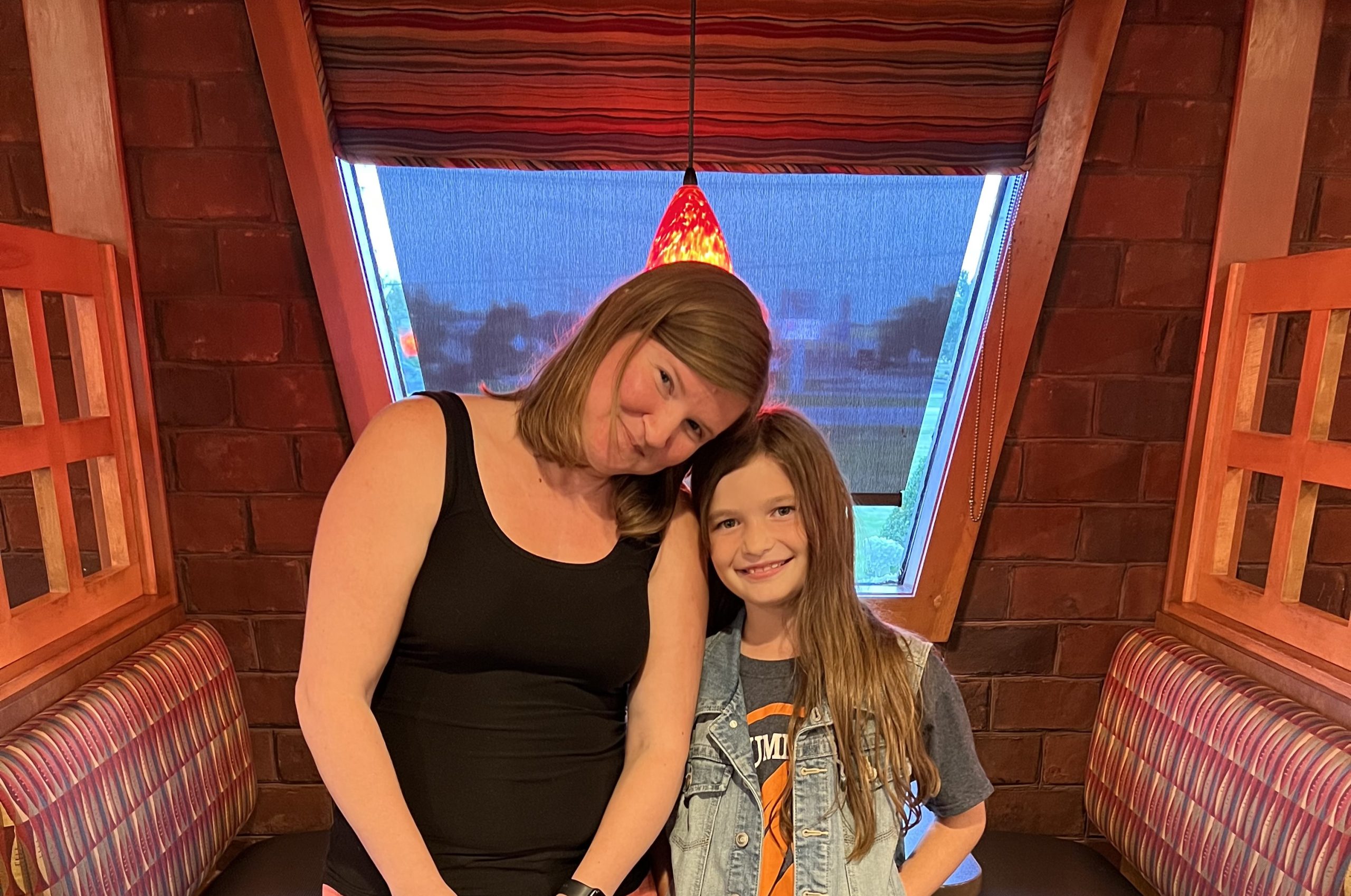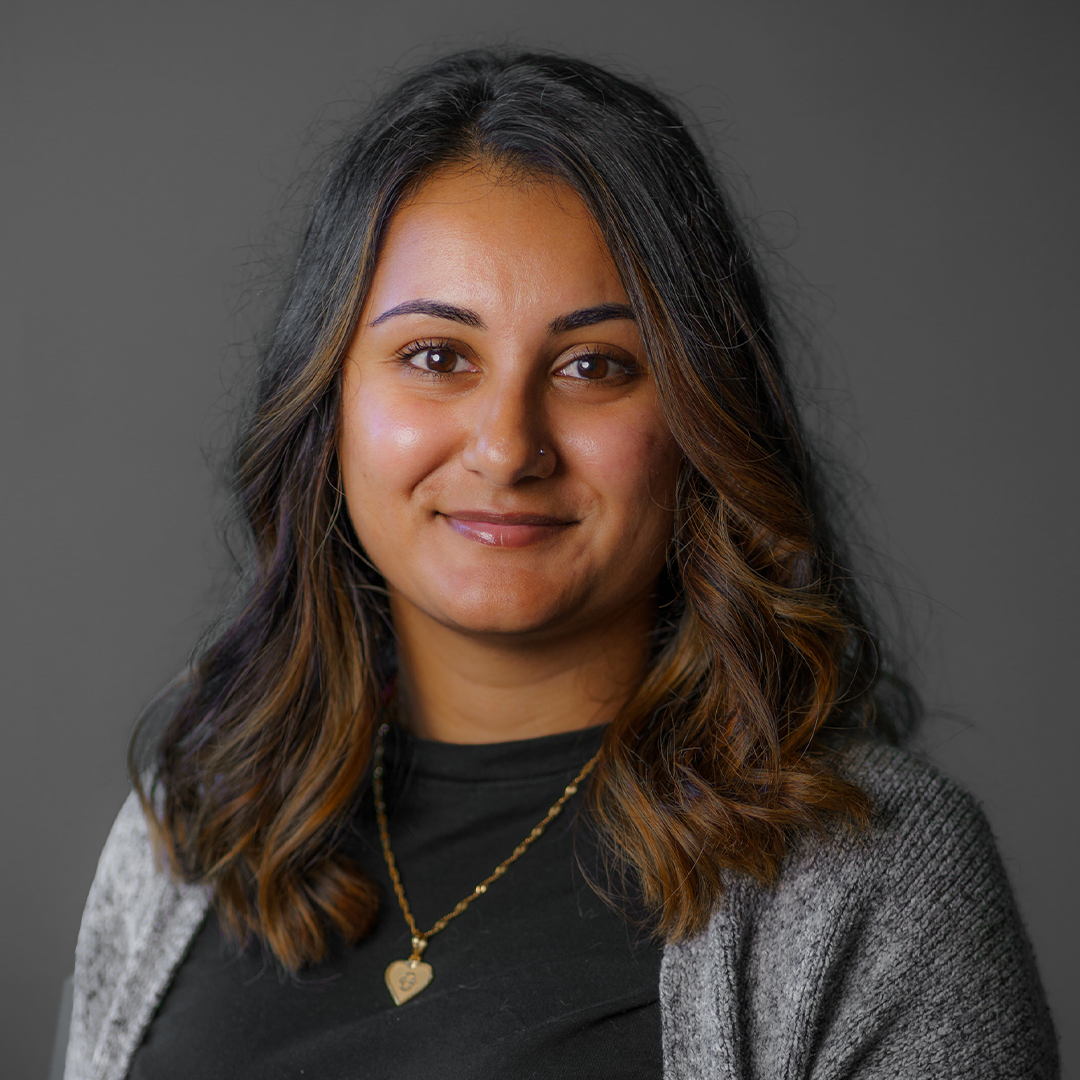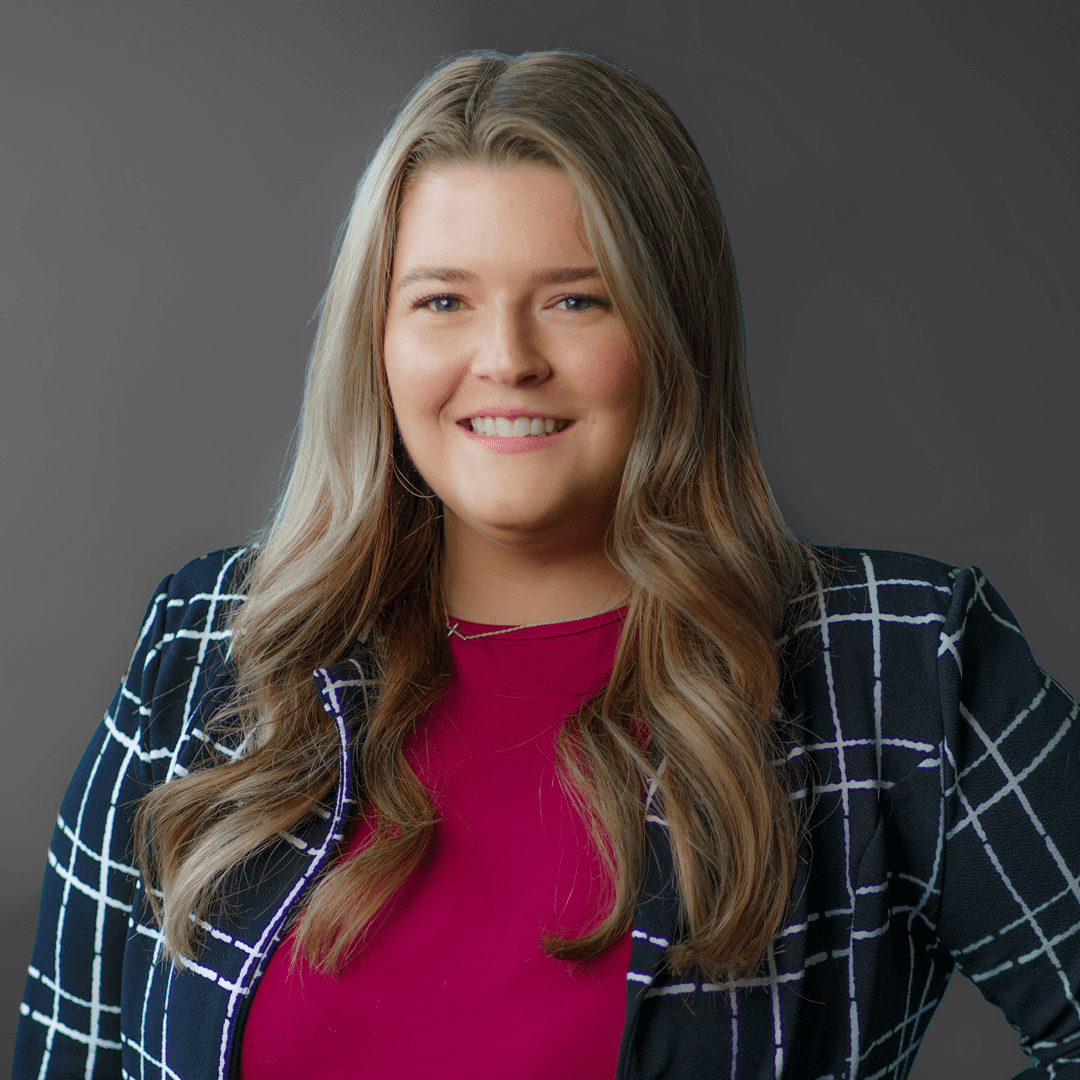
Staff Spotlight: Payton Burris
Today, we’d like to shine a special spotlight on Payton Burris, who has just reached her 6-year work anniversary here at Big Brothers Big Sisters. The support she provides to our youth and volunteers as a Big Futures Match Support Specialist is integral to our agency and does not go unnoticed.
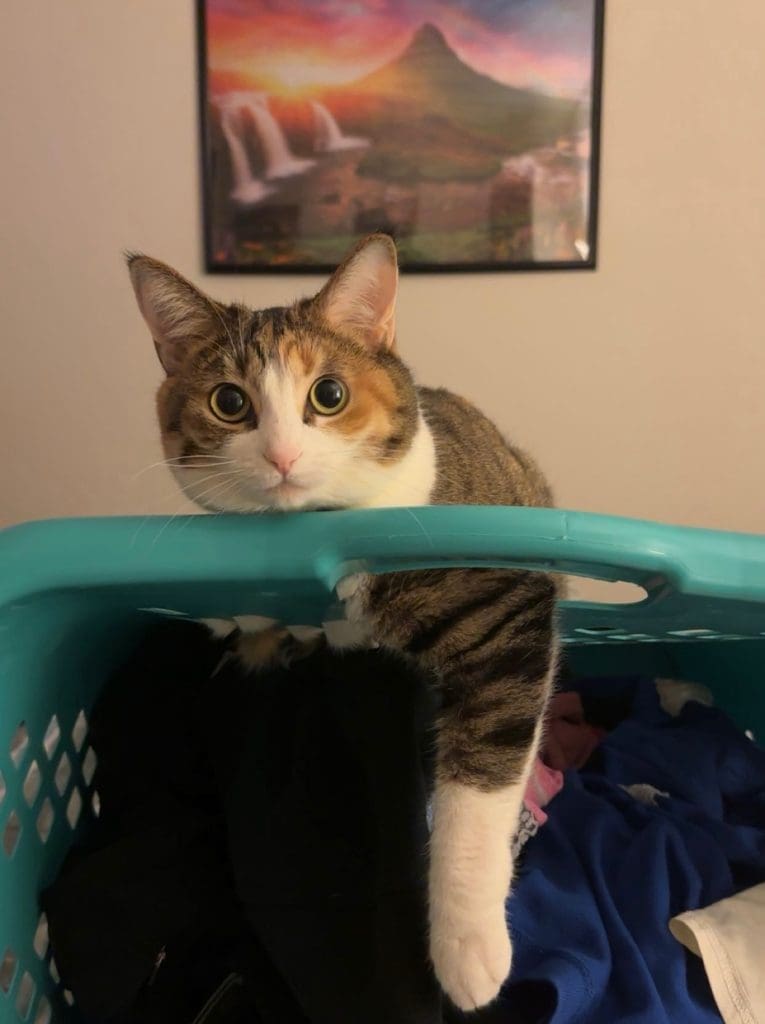
As a self-proclaimed homebody (during the winter, at least), there is nothing Payton loves more than a quiet craft, a peaceful nap, or curling up with her calico cat, Tater Tot. But during the summer, it is all campfires, kayaking, game nights, and sports!
In the office, there are a few things that are distinctively “Payton.” Anyone who walks past her desk could make an easy guess as to what her favorite way to take off the stress of the work week is: building Lego flowers. Or what her favorite animals are: cows!
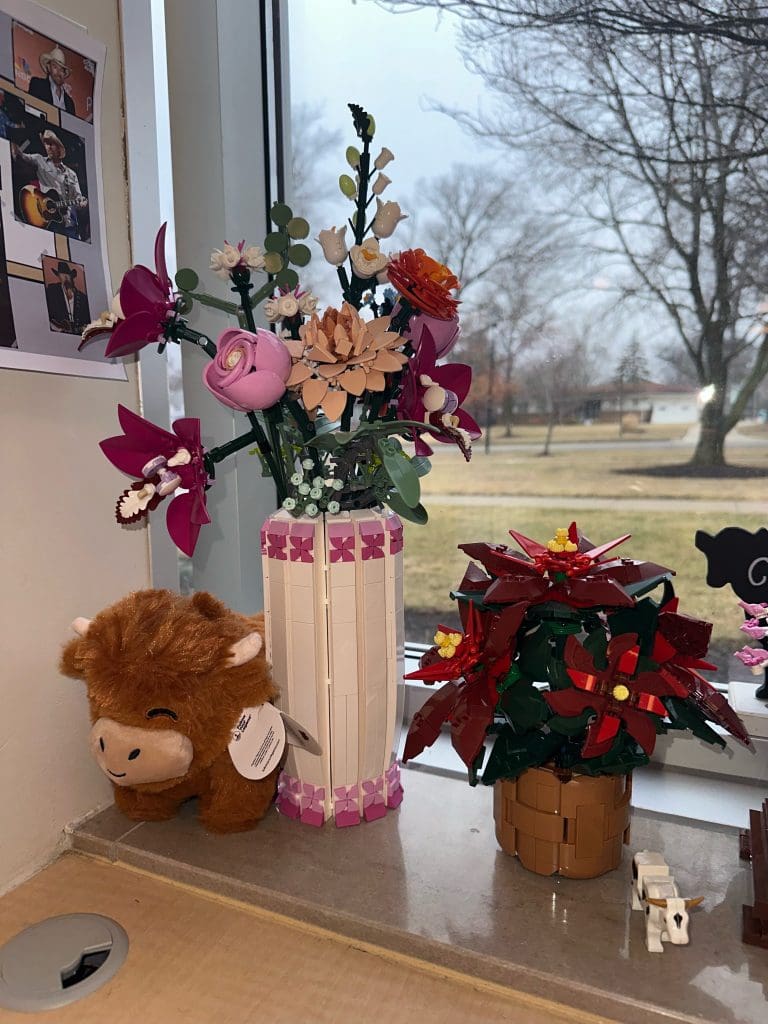
Her journey with Big Brothers Big Sisters started more than six years ago. Initially, she was just looking for a new job, ready for a change. After learning about an open position from an acquaintance, she applied, not knowing much about BBBS or where this new path would take her.
Beginning with BBBS at 18 years old—and literally signing the papers to go full-time on her 19th birthday—Payton gradually developed a passion for the mission and quickly learned the organization inside and out. Her first position was as a Customer Relations Specialist, with Payton briefly switching to a program support role before returning to customer relations. After receiving her degree in human services from Purdue Fort Wayne last year, she began her new responsibilities as a Big Futures Match Support Specialist.
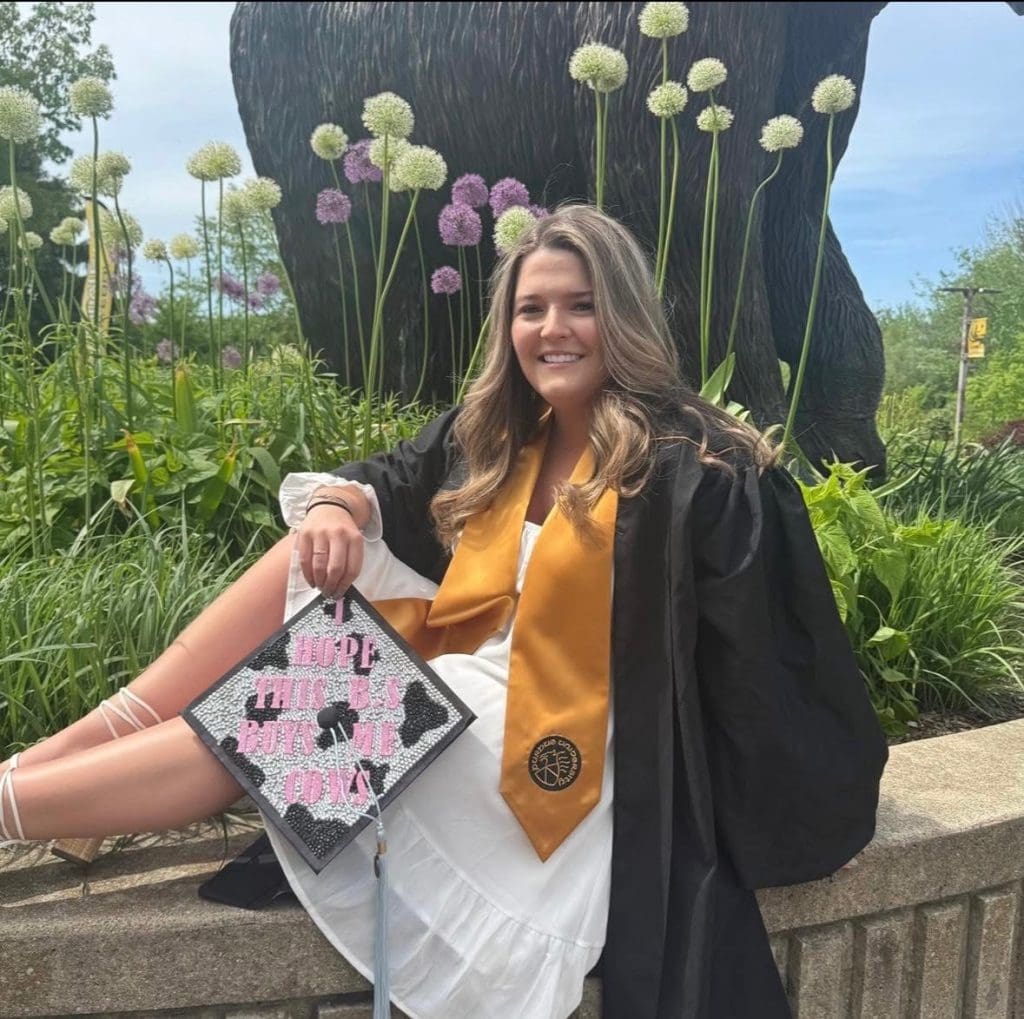
This position entails providing individualized casework to matches with youth from 8th grade to the end of college. Adolescents face numerous life changes and choices to make for their futures. As a Match Support Specialist for Big Futures, Payton works to give them the resources, opportunities, and extra guidance they need during this time. Helping youth reach their fullest potential is exactly what Payton loves about her job.
What is your favorite thing about working at BBBS and your job?
Payton: I think my favorite thing about working here is not only the opportunities that we provide the kids but the opportunities that we as staff have to do, like attend the events and network.
I like when I’m able to help, really. Sometimes it is playing the long game when it comes to whether a kid will end up being able to get their grades up and stuff like that. But I really like when I have something at my disposal that I can offer them.
For example, if a kid is struggling with their grades, we have our After School program, and they can come have that quiet space. Or if it’s a direct subject, someone here has at least some prior knowledge of it, so we are able to help in that way.
Through countless hours of one-on-ones, Payton works with her youth to set up college tours, explore career interests, facilitate job shadows, and, overall, do whatever she can do to prepare her matches for life after high school. Trying to help as much as possible can take its toll, which leads Payton to believe there are certain skills caseworkers must develop.
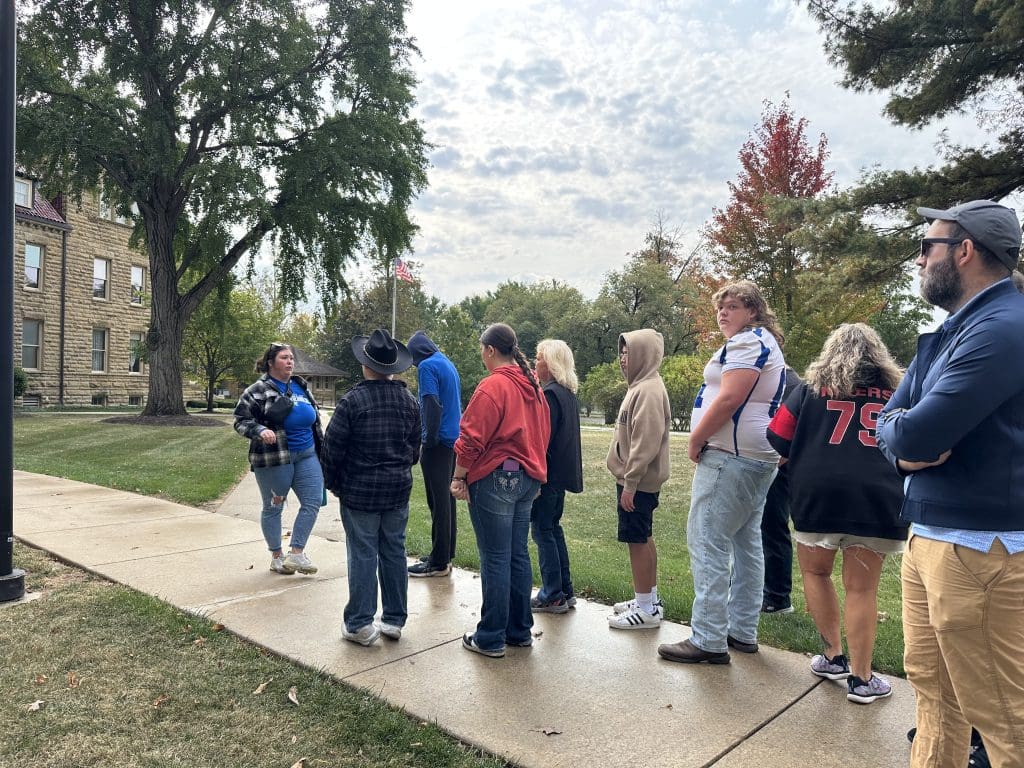
What are the most important qualities in doing social work/casework?
Payton: I think the most important quality to have in this field, whether it’s casework or social work, is knowing how to separate others’ struggles from your own. That is something I struggled with heavily at first.
The other one is patience. Everyone is experiencing life for the first time, and they are not always going to make the smartest decisions. Being able to take your own experiences and try and help them work through it—or talking with them about it and helping them understand right from wrong—is needed.
As a Match Support Specialist (MSS), Payton helps adolescents learn decision-making skills and talk through any issues, through quarterly check-ins with her volunteers, youth, and parents. If either side is uncomfortable, she focuses on effectively communicating with the Little, the parent, and the Big. This work helps keep each mentorship running smoothly, working out any problems that may arise.
Payton is also responsible for making “Plans of Action” for struggling kids, individualized based on how willing the teen is to work with her and available resources within the agency and the community. However, although caseworkers try their best, resources can be limited.
What is the most difficult part of your job?
Payton: It’s really hard to understand that there is only so much we can do. We want to make sure they have all the opportunities or resources that we can give them, but sometimes it is not enough, so it can be kinda hard.
…
We can’t always be “yes-men”, and it’s really hard to have those conversations sometimes but typically people are very understanding that we are genuinely doing everything we can.
Creating Plans of Action can also be difficult when a match transitions to a new case manager. Building a new repertoire and a trusted relationship takes time, especially when there are sensitive or difficult subjects to address. Although every caseworker has a different approach to handling this, Payton makes a point to talk with the previous MSS about the match. Once she meets with new additions to her caseload, she ensures they know she has done her “due diligence” to learn about their history and their needs.
Thoughtful and organized, she believes this collaboration with her coworkers is imperative to ensure a smooth process—and excellent customer service—for those in our programs. As for Payton’s own team, she feels like she couldn’t have a better one.
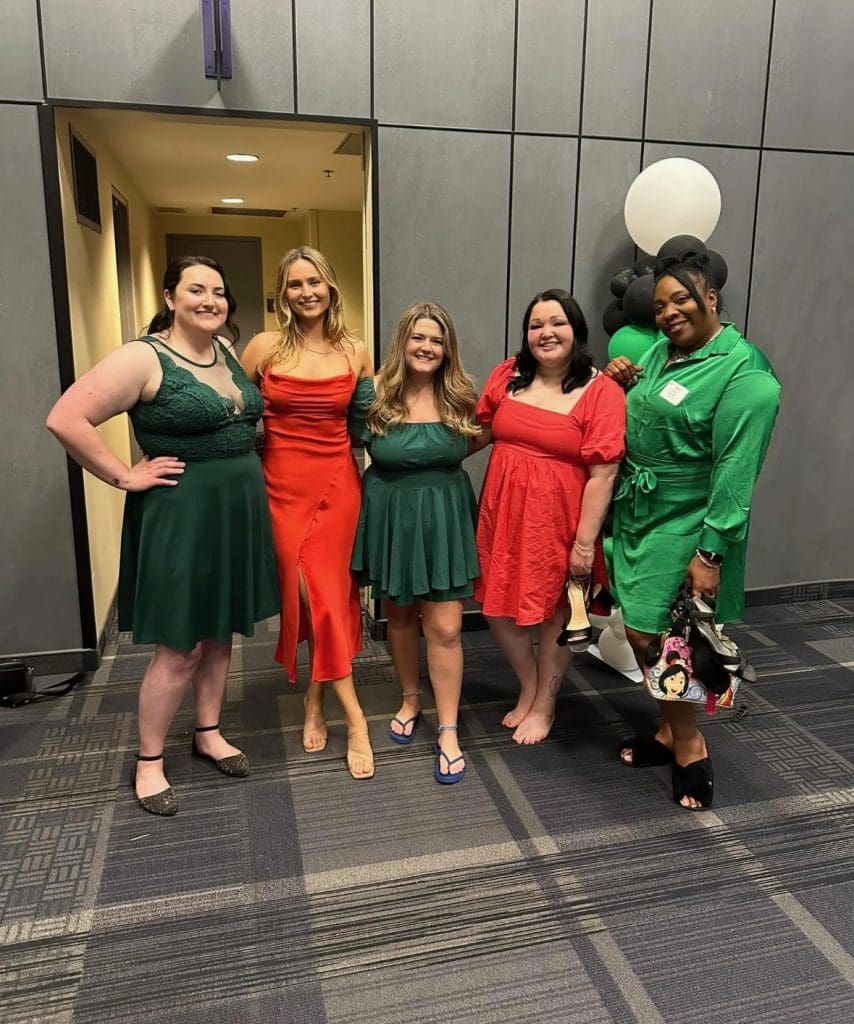
Do you enjoy your job, do you enjoy your team, why?
Payton: I’ve been here 6 years, and I can honestly say this year is the best year I have had here because I enjoy my job more than I ever thought I would.
And I am biased, but I think I have the best team. We communicate well, our morale with each other is amazing, we can message each other to ask questions throughout the day, and we’re more than happy to help each other out!
10/10, I would take a team with them again!
What advice do you have for those struggling with not being able to be a “yes-man”?
Payton: I would talk to your team—especially those who have been there either super long or have had careers in other areas—because 9 times out of 10, they have had to deal with those hard conversations or the realization of that. And they are always a great support system when it comes to accepting that and not beating yourself up.
Creating a support system to rely on is not only helpful to Littles in our programs but also to those in the workplace! Payton herself has had many mentors in her lifetime that have helped shape her for success.
Do you have your own mentor, either personal or professional, in your life?
Payton: In each chapter of my life that I’m in, there is someone else that I look up to because they are relevant to what I’m experiencing currently. And I do take the lessons of previous people to heart all the time.
I did an internship at a different nonprofit and one of the instructors there, one of his lessons was along the lines of ‘it’s just a bad season, not a bad life” and ‘it’s just a bad chapter, not a bad story.’ And it helps me get through the struggles I’m going through throughout the year.
Thank you, Payton, for your dedication to serving your matches through exceptional casework, a can-do attitude, and being a genuine team player!
